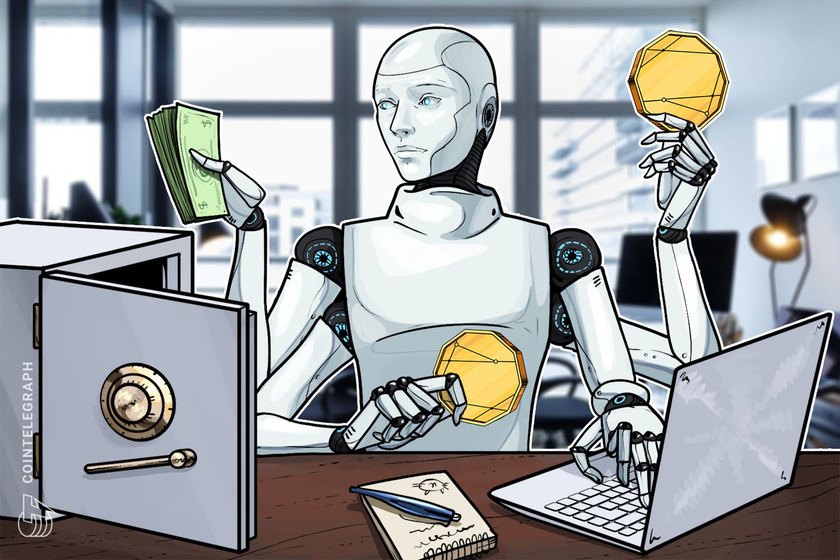Over half of Americans fear ‘major impact’ by AI on workers: Survey


More respondents said AI will “hurt” American workers more than it will “help” them over the next 20 years.
Nearly two-thirds (62%) of Americans think implementing artificial intelligence in the workplace will have a “major impact” on American workers within the next 20 years, leaving many employees “wary” and “worried” about what their future holds.
An April 20 Pew Research report found 56% of the 11,004 adults surveyed in the United States said that AI would have a major impact on the U.S. economy as well. Another 22% believed AI will impact the economy to a minor degree.
Only 13% of participants believed “AI will help more than hurt” American workers, whereas 32% thought the opposite. The rest of the participants predicted “AI will equally help and hurt” American employees (32%) or were unsure (22%).
While 62% of Americans believe AI will have a major impact on workers generally, just 28% believe its use in the workplace will have a major effect on them personally. https://t.co/ExpDNlOsWl pic.twitter.com/biMSX1AUln
— Pew Research Center (@pewresearch) April 20, 2023
The study didn’t directly ask participants whether they thought they would lose employment to AI but many respondents cited worry that an AI-enabled workplace would lead to increased surveillance, data mismanagement and misinterpretations.
Pew Research said there is a “consensus” that many American workers feel like they would be watched “Big Brother” style, with 81% citing the concern.
Most respondents (71%) said they oppose the idea of AI being used to help make a final decision in the hiring process.
Nearly two-thirds said they would be most bothered by AI tracking their minute-to-minute movements, and around half cited potential frustrations around an AI keeping track of how many hours they’re at their desk and recording exactly what they’re working on.


Just under 40% cited concern that AI would be used to evaluate their performance.
Despite the mixed views on what AI would offer to the workforce, two-thirds of respondents said they wouldn’t want to apply for a job where AI was used to make hiring decisions.
One surveyed man in his 60s explained that AI shouldn’t be used for that purpose because it can’t judge character:
“AI can’t factor in the unquantifiable intangibles that make someone a good co-worker … or a bad co-worker. Personality traits like patience, compassion and kindness would be overlooked or undervalued.”
“It’s a ‘garbage in, garbage out’ problem,” another surveyed woman explained.
Not everyone agreed though, as a man in his 50s explained AI has the potential to fill the shoes of a hiring manager:
“I think the AI would be able to evaluate all my skills and experience in their entirety where a human may focus just on what the job requires. The AI would see beyond the present and see my potential over time.”
Just under half of the participants said AI would treat all applicants in the same way “better” than what hiring managers do, while 15% said AI would be “worse.” Under 15% said the treatment would be “about the same.”
Related: 7 artificial intelligence examples in everyday life
Those surveyed who claimed AI would lead to “better” treatment explained the technology would help circumvent biases and discrimination based on age, gender and race.
Others believed AI may reinforce the same prejudices that companies are trying to eradicate.
The motivation to carry out the study was partly prompted by what Pew Research describes as the “rapid rise of ChatGPT” — an AI chatbot released by OpenAI on Nov. 30.
Magazine: NFT Creator, Emily Xie: Creating ‘organic’ generative art from robotic algorithms



